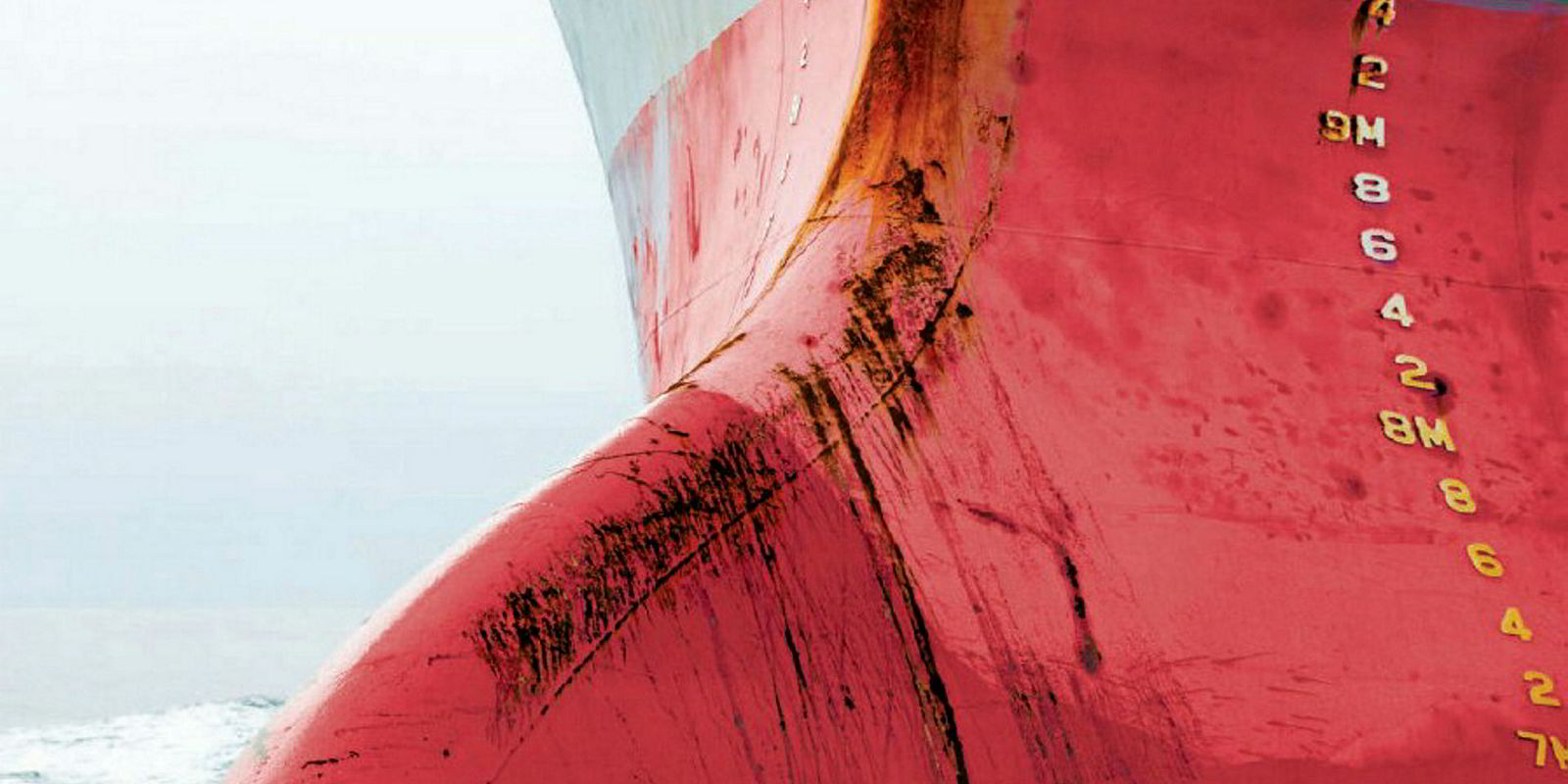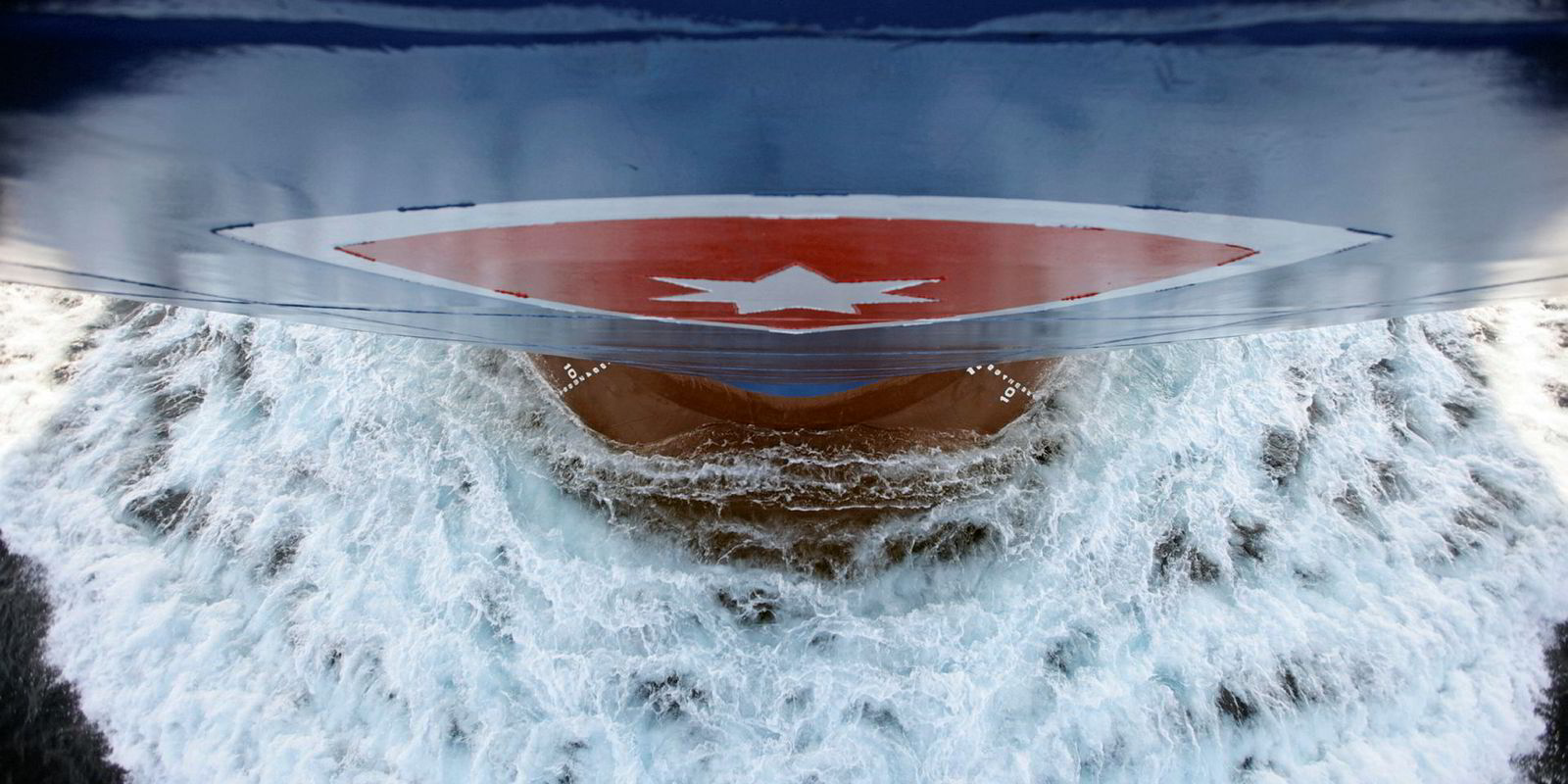The days when the term “full steam ahead” used to be associated with a ship getting underway at the start of a voyage may soon be a thing of the past, judging by the slow progress being made at the IMO over emissions reductions.
A growing number of government proposals, including one from the world’s largest shipowning nation of Greece, are calling for some form of speed restriction or management to achieve reductions in carbon emissions.
These proposals are now winning the support of leading shipping industry figures such as Philippe Louis-Dreyfus and George Procopiou.
This month, a critical IMO environmental committee will convene to try to hammer out short-term measures to reduce carbon emissions.
As delegates take their seats, there will be little time for diplomatic pleasantries. The clock is ticking down fast on the IMO, which aims to reduce carbon emissions per transport work — which means per tonne of cargo carried — by 40% by 2030.
The IMO has set its target against a baseline of 2008, when fuel consumption peaked.
No quick fixes
It is dawning on regulators that technological advances are not going to come quickly enough. The only hope of a quick fix for shipping's greenhouse-gas problem is to slow down the world's fleet and burn less fuel.
All this is happening at a time when public unrest over climate change, as witnessed in London over the Easter holidays, is piling the pressure on governments to be seen to be doing something decisive.
But when regulators mandate speed restrictions, how will it be applied?
Hardliners such as France and the non-governmental green lobby groups are calling for speed limits across the world’s oceans based on a carbon cap idea.
But there are problems with this. How speed limits will be managed and policed is problematic. Also, such limits may well instantly achieve the necessary reduction in emissions but without incentivising technological advances.
Revolutionary technology will be required if the IMO is to reach its longer-term goal of a 70% reduction in carbon emissions per transport work by 2050.
Another hurdle is ships already invested in running on less-carbon-intensive fuel, such as LNG, not being rewarded and having to reduce speed as well.
Goal-based solutions
The other solutions tabled in submissions by Denmark, Germany, Spain and Japan are goal-based and involve setting fuel-efficiency performance targets for individual vessels.
The submissions are an attempt to encourage ships to adopt fuel-efficient technology and better operating standards. But they also recognise that some form of speed management will be required for many vessels to achieve the carbon reduction targets.
It will at least incentivise owners to seek technological solutions, or alternative fuels, to reduce carbon emissions in a way that will also allow them to maintain high operating speeds, giving them a commercial edge.

Japan’s proposal is heavily geared to encouraging early renewal of the fleet by operating older gas-guzzling ships at a speed that will make them commercially unviable. This move will promote their replacement by a new generation of ultra fuel-efficient ships built under the Energy Efficiency Design Index.
Again, these “goal-based” ideas are not without problems. The law of diminishing returns applies to ship speed too and, for each ship, there is a point after which it becomes inefficient — and unsafe — to reduce speed further. Some proposals suggest shaft power restriction but that could raise safety issues for many vessels.
As an alternative, the International Chamber of Shipping’s idea is for ships to adopt highly efficient operating standards, through a Ship Energy Efficiency Management Plan, that will include speed optimisation. This involves trading at a vessels' most-efficient operating speed.
While the approaches to speed management are diverse, the one common thread in almost all of the proposals is that the solution will have to be enforced by 2023 if the IMO is to have any chance of reaching its target.
That will require countries to come to an agreement on the measures by the Marine Environment Protection Committee meeting this time next year.
The IMO will have to act quickly, for once, if it wants the world's fleet to slow down in time.






